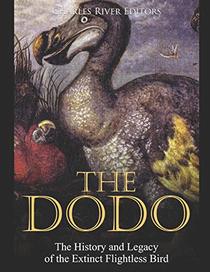The Dodo bird comes from a small island on the eastern side of Africa, east of the large island Madagascar and west of the mainland India. Mentioned in passing by Dutch sailors and later by Dutch settlers, this bird was unique in looks and actions. They lived for hundreds of years without predators until man decided to inhabit the lava island. They didn't take long to obliterate the population of these unique creatures because they were so tame and easy to kill.
Arab sailors mentioned the dodo birds first. Then, Portuguese and Dutch sailors mentioned them in their logs. Thinking the birds were limitless, sailors killed them for a different eating fare from their usual hardtack.
Unfortunately, by the beginning of 1700, there were no more dodo birds left. The author was generous with photos and drawings, showing the closest living relatives to these awesome birds.
There are so few fossils of these birds because the soil of Mauritius is very acidic, hot, and damp. Fossils don't survive long in those conditions. It was surprising to learn that the dodo bird lived in the forests, not on the beaches.
If I understood the text correctly, the female has only one egg in her life. This is why dodos couldn't replace themselves fast enough. She and the male share the nesting work and the baby emerges after about 46 days.
This is a fascinating expose of an extinct variety of docile, innocent birds. Scientists say that of the 45 bird species on Mauritius, only 21 are still living on the island. They warn that at current levels, 25% of all avian species (worldwide) will be gone in the next 100 years. Sobering words, indeed.
Arab sailors mentioned the dodo birds first. Then, Portuguese and Dutch sailors mentioned them in their logs. Thinking the birds were limitless, sailors killed them for a different eating fare from their usual hardtack.
Unfortunately, by the beginning of 1700, there were no more dodo birds left. The author was generous with photos and drawings, showing the closest living relatives to these awesome birds.
There are so few fossils of these birds because the soil of Mauritius is very acidic, hot, and damp. Fossils don't survive long in those conditions. It was surprising to learn that the dodo bird lived in the forests, not on the beaches.
If I understood the text correctly, the female has only one egg in her life. This is why dodos couldn't replace themselves fast enough. She and the male share the nesting work and the baby emerges after about 46 days.
This is a fascinating expose of an extinct variety of docile, innocent birds. Scientists say that of the 45 bird species on Mauritius, only 21 are still living on the island. They warn that at current levels, 25% of all avian species (worldwide) will be gone in the next 100 years. Sobering words, indeed.




